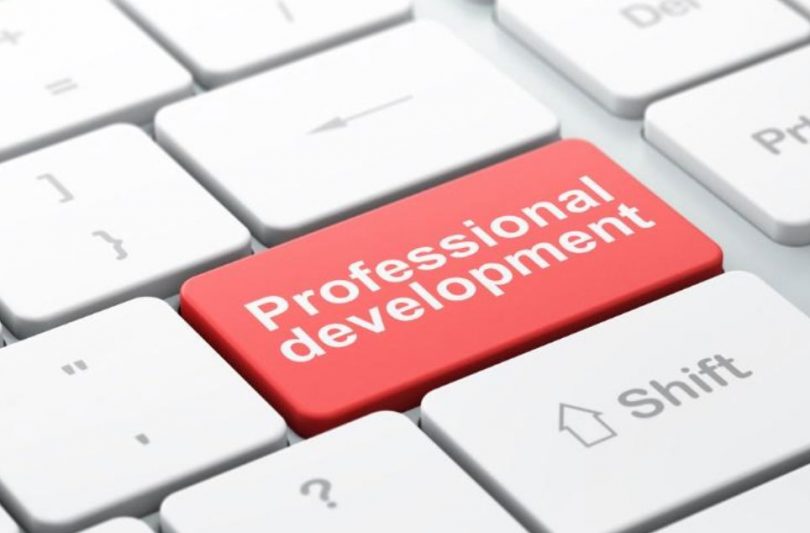Decades ago, there were only a handful of ways for working professionals to improve their credentials, and none of them were particularly attractive.
There was night school, which eviscerated workers’ free time with scheduled classes and coursework. There was distance education through the mail, which took too long for feedback and hardly encouraged engagement with course material. Then there were books and journals, which required workers to have impeccable motivation to develop their professional skills. Finally, workers could put their careers on hold and return to school full-time, but such a gap in their work experience – and a few years of no income – was far from ideal.
Because none of these options were fast, convenient or particularly effective, few professionals bothered to participate in professional development – but that is not an option for modern workers. These days, competition for every job is tight, and the more you can prove your engagement with continued education, the more attractive you are to the best employers.
Fortunately, just as the job economy has changed, your options these days for professional development are vastly superior to those of the past. Read on for how you can develop your professional skills, regardless of your field, quickly and comfortably through the internet.
Online Degree Programs
A full degree is by far the best option because it is a clear indication to current and future employers that your education is legitimate and that you are serious about professional development. However, despite their seeming informality, online degree programs aren’t any easier than traditional, in-classroom ones; in most cases, online MBA school requirements remain the same – a few years of work experience, high GMAT scores, etc. – and because they require you to manage your time and self-motivate, they can be more difficult. You should consider returning to school for an MBA or other advanced degree, but you should be prepared for this highest level of professional development.
MOOCs
Massive open online courses (MOOCs) exploded at the beginning of this decade, offering basically free education in any topic you could be interested in. Millions of students are enrolled in courses through platforms like Coursera, edX and Udacity, and many of them gain knowledge they can apply directly to their careers.
However, because MOOCs are rarely organized into a program, you do need to pick and choose your courses well to gain a suite of useful skills. What’s more, MOOCs are much less impressive on your resume because you cannot prove how well (or poorly) you performed in class. Thus, you can use MOOCs for personal and professional benefit, but unless they provide hard skills you can list on application documents, they likely won’t boost your job search.
Blogs
 Regardless of your field and industry, you can find dozens of blogs filled with career tips, tricks, trends and news. Many of these blogs are managed by respected associations or publishers, but others are created and maintained by average workers like you. You should find a few blogs you enjoy and that provide accurate and useful information; then, you should subscribe to those blogs to receive regular industry updates. This is a relatively passive way to develop your professional knowledge, but it is also one that will keep you in-the-know.
Regardless of your field and industry, you can find dozens of blogs filled with career tips, tricks, trends and news. Many of these blogs are managed by respected associations or publishers, but others are created and maintained by average workers like you. You should find a few blogs you enjoy and that provide accurate and useful information; then, you should subscribe to those blogs to receive regular industry updates. This is a relatively passive way to develop your professional knowledge, but it is also one that will keep you in-the-know.
eBooks
A step up from blogs, eBooks are larger-scale publications that focus on industry events, ideas and other important information. Often, there are more industry-appropriate eBooks than traditional books, so you can find exactly the content you want by downloading a book from the internet. Plus, their convenient digital format means you can access them through your computer, smartphone or eReader tablet. eBooks are excellent conversation-starters, especially during networking events when you want to impress those around you with your deep knowledge.
Digital Events
Speaking of networking events, you shouldn’t discount networking when you consider methods of professional development. Because your network is just as likely to provide a high-paying job as your hard-earned knowledge and skills, you should invest as much time developing your network as you do studying new information.
To that end, you should consider participating in a handful of digital events every year. Unlike traditional conferences, which demand inordinate amounts of time, money and energy, digital events tend to be affordable and convenient, allowing you to log in and interact from your computer. You should be able to find chatrooms, webinars and other events in your industry worth your investment.
Professional development isn’t easy, but thanks to the internet, it is easier than ever before. You can stay up to date on the latest industry news, improve your saleable skills and make valuable connections through the above professional development methods, so you can build the career of your dreams.


